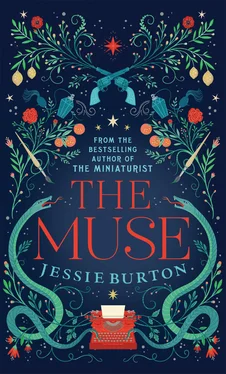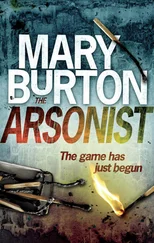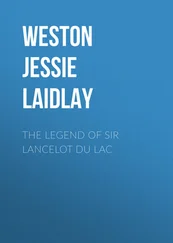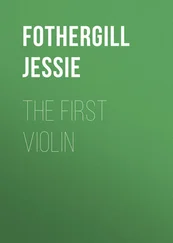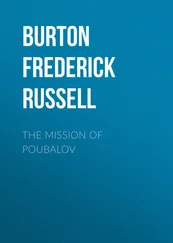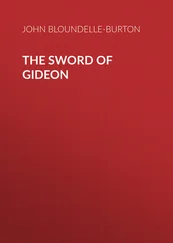This leaves unexplained, of course, why Quick had the Scotts’ address in her telephone book, and her interest in the question of Lawrie’s mother. It could have been due to her own investigations over Lawrie’s possession of the painting, before the cancer was too much. But sometimes, I wonder. Did Quick look at Lawrie and see her brother’s face, echoed there? Or did she see Harold Schloss’s features imprinted in his son? Or did she think nothing of it at all? Whatever it was, she always seemed unenthusiastic that Lawrie was my boyfriend.
One only need look again at the photo of Isaac Robles to see similarities between him and Lawrie — but Harold had dark hair too. Lawrie’s paternity remained a question mark. I do sometimes wonder if Lawrie knew this, too — given how vague his mother always was to him about his father. And yet, I will always remember how he requested from Reede a copy of that photograph of Isaac Robles.
Some people will think that my silence all these years was wrong. After all, the rare times that an Isaac Robles comes onto the market, it sells for astronomical sums. Olive Schloss deserved her artist’s triumph, Lawrie deserved to know the whole story — but is there ever such a thing as a whole story, or an artist’s triumph, a right way to look through the glass? It all depends where the light falls. Teresa Robles witnessed the benefits of working anonymously, and as I read Olive’s story, so did I. As far as I can tell, she certainly enjoyed the pseudonym. The work, for her, was everything.
Rufina now hangs, of all places, in the National Gallery in Trafalgar Square, beyond those huge lions where once I saw Cynth waiting, dressed in her new sheepskin coat. After several years in a private collection, it went back into auction, and was purchased by the nation as part of the gallery’s drive to acquire more twentieth-century art. There was fierce competition from the Prado in Madrid, and I expect Reede was grimly satisfied that they didn’t get it. He never forgot the time they wouldn’t lend him that Goya. The photograph was returned to the Prado. How it got there in the first place is a mystery; I can only suppose that Sarah returned it to Spain’s national gallery, in a mistaken attempt to keep their interest in Isaac Robles alive.
It was a strange time, after Quick died. The exhibition was considered a success by the Skelton, and Reede was pleased with the attention and income it generated. Gerry did sell Sarah’s house, so Lawrie lost his home, just as I found mine. The sale of Rufina and the Lion severed Lawrie’s ties to his mother’s past, to Gerry; all of it. Or at least, he probably hoped it did, for art rarely obeys human desire. I expect such a painting left its imprint, even when he couldn’t see it. With Rufina sold, Lawrie used some of the funds to go on a trip to America. He invited me, but I stayed in London, because I wanted to be in Quick’s house, to keep working at the Skelton.
In the end, Lawrie didn’t come back.
I’d like to say that the elasticity of youth meant the skin stretched easy. He would call from New York every week, to tell me he missed me, why didn’t I come over — but I was where I wanted to be, and the fact was, I did not miss Lawrie as much as I might have missed my work. He had told me to keep writing, so I did. I would have preferred not to have to choose between writing and loving; because for me, they were often the same thing.
It was a time of new experiences, without the benefit of the old to mitigate the after-effects. My life was a beanstalk and I was Jack, and the foliage was shooting up and up, abundant, impressive, at such speed that I could barely cling on. I loved and I lost love; I found new creativity and a sense of belonging. And something deeper happened, something darker, which we have all gone through — and if we have not, it is waiting for us — the indelible moment when we realize we are alone.
Perhaps I didn’t have to choose. Perhaps that was a dichotomy I set up myself. Regardless; the phone calls became more sporadic, and then they stopped.
On the day I went to Quick’s cottage with the keys, I took both Cynth and Pamela with me. The place was much as it had been that night the ambulance men carried Quick out on the stretcher. There was the faint smell of her Eau Sauvage in the air. It was cold. The heating had been off and it was nearly December. I expected the face of her cat to appear at the kitchen door, but he had fled.
We went from room to room. It is not a large cottage. There are four rooms upstairs — three bedrooms, and a bathroom that freezes your skin in the winter months due to the inappropriately huge single-glazed window and tiles everywhere. Quick didn’t have much. Simple beds, attractive rugs, cracked ceilings. In the room I assumed was hers, she had a small table wedged under the window, which overlooked her garden. On the table was a typewriter, the same she had used to write the contents of the folder. I stared down at the machine. It felt like it was staring back at me.
Every day since, I have tried to put that typewriter to good use.
On the occasions I am asked to look back and reflect on my own books, I realize it has been my lifetime’s purpose to try and understand what happened when I started working with Marjorie Quick. It started with me writing her eulogy, and has gone on from there. The preoccupations, the timbre, the shape of my writing have hinged on that short period of my life. My writing is the constant reconfiguration of how I myself was once reconfigured.
I often visited the gallery, specifically to see Rufina and the Lion , to stand with the public and admire its enduring power. What Teresa intended all those years ago, had, in its own way, come true. And yet more recently, as I have watched the sisters, I know that behind those eyes and underneath those brushstrokes there is another story, a story that is now partly mine. One woman, her body buried by the roots of an olive tree. Another, fleeing and facing unknown waters. Then me.
The rediscovery of Rufina and the Lion in 1967 was bound up with my own awakenings: my understanding of Quick, Cynth and her baby, my affair with Lawrie, a growing confidence in my own writing. That painting set delayed time bombs, which carried on exploding — sometimes gently, sometimes with perturbing force — as the decades rolled on.
And last year, a question began to press inside me, as persistent as a lion who sets his sight upon you and will not let you go. For years I had enjoyed the girls’ hidden truth, this extra privilege, this miraculous secret of a nineteen-year-old, painting in the attic of her father’s rented house in Spain. And I wondered: might someone look at Rufina, at me, and believe such things? A new curiosity, rather than my hard-earned confidence, became the fuel to write.
Although any collective answer to my question remains to be seen, personally I feel quite certain of it. Because if there’s one thing I’ve learned, it’s this: in the end, a piece of art only succeeds when its creator — to paraphrase Olive Schloss — possesses the belief that brings it into being.
Odelle Bastien
Wimbledon, 2002
Art
Berger, John — About Looking (Writers’ and Readers’ Publishing Co-op, 1980)
Bernier, Rosamond — Matisse, Picasso, Miró — As I Knew Them (Sinclair Stevenson, 1991)
Bernier, Rosamond — Some of My Lives (Farrar, Straus & Giroux, 2011)
Chadwick, Whitney — Women, Art and Society (Thames & Hudson, Fifth Edition, 2012)
Guggenheim, Peggy — Out of This Century: Confessions of An Art Addict (Deutsch, 1980)
Hook, Philip — Breakfast at Sotheby’s (Penguin, 2013)
Читать дальше
